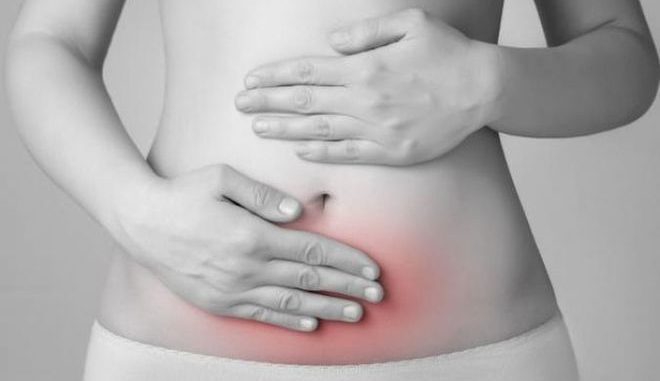
PCOS ka Ilaaj – Nowadays polycystic ovarian syndrome (PCOD or PCOS) has become a common problem found in women. PCOD causes problems due to improper eating and a modern lifestyle. Also, due to hormonal changes in women, there is a risk of getting this disease. The problem of the polycystic ovarian syndrome (PCOS) is seen in women during the reproductive period, 16–35 years old women are most affected by it and sometimes they are not even aware of the disease going on inside.
Due to hormonal imbalance in women, small knots are formed in the ovary (also called cysts). It is made up of liquid material which gradually becomes larger in size, forming many small cysts simultaneously. This disease has a direct impact on the fertility of women, which makes them unable to conceive. But in this context, home remedies can prove to be beneficial.
What is Polycystic Ovarian Syndrome?
Vata, Pitta, Kapha have been said to be the cause of the disease in Ayurveda, so due to improper eating and stressful life, the problem of polycystic ovarian syndrome is increasing in women nowadays? Earlier this problem was seen in women aged 30–35 years, but now this problem is also seen in girls of 16–20 years old. In this disease, the effect of Vata, Pitta, Kapha is on all the three doshas. Due to phlegm, lumps containing fluid are formed in it and due to bile and Vata, imbalance of hormones and other physical symptoms are seen.

There are 3 types of Polycystic Ovarian Syndrome (PCOS) –
- Insulin Resistant Ovarian Syndrome (Insulin Resistant PCOS)
- Immune-related polycystic ovarian syndrome (Immune-related PCOS)
- Due to oral contraceptive pills
Also Read : Period Diet: What to Eat and What not During Periods?
Insulin Resistant Ovarian Syndrome (Insulin Resistant PCOS)
It is caused by insulin resistance. In this, the body becomes less effective towards insulin and the blood sugar level becomes unbalanced. The process of ovulation is interrupted due to excessive insulin and the ovaries produce more testosterone. This insulin resistance is caused by high sugar intake, fatty and toxic substances.
Why does polycystic ovarian syndrome occur – Polycystic ovary syndrome (PCOS) is a dangerous hormone imbalance that damages the reproductive system of women. This makes their ovaries weak. When eggs are not coming out from the ovary, a cyst is formed. These cysts produce a hormone called androgen that is responsible for PCOS. There are many reasons behind getting polycystic ovary syndrome (PCOS), of which it is the main-
- This is mainly due to the imbalance of estrogen and progesterone hormones.
- Polycystic ovary syndrome problem is also seen due to diseases like diabetes and high blood pressure.
- Eating more food containing junk food and preservatives and eating more fatty and sweet food.
- Stress is also a primary cause of polycystic ovary syndrome. It is very difficult to remain stress-free in today’s sedentary life, so there is a possibility of polycystic ovary syndrome disease due to stress and improper eating.
Symptoms of Polycystic Ovarian Syndrome (PCOS)
Some symptoms of polycystic ovary syndrome are so common that the disease becomes difficult to understand-
- Menstrual irregularities occur when polycystic ovary syndrome occurs. Due to this, the menstrual discharge does not come on time or comes in greater quantity.
- More hair on the face and body.
- Excess of acne
- Inability to conceive or recurrent miscarriage at conception.
- Obesity and rapid weight gain even when not eating much.
- Decreased sexual desire.
- Rapid hair loss.
- Dandruff
- stomach ache
- Emotionally unstable, irritability.
- Genetic reasons, if the problem of becoming an onion cyst in the family is going on from generation to generation then the probability of getting PCOD increases.
- Male hormone levels are found to be high, this condition is known as Hyperandrogenism.

Also Read : Period Diet: What to Eat and What not During Periods?
Measures to avoid Polycystic Ovarian Syndrome (PCOS)
– To avoid polycystic ovary syndrome, it is necessary to make some changes in your lifestyle and diet.
- Renounce oily, fatty and sweet foods.
- Eat more and more fruits and vegetables. Include a fibrous diet in food.
- Do not eat junk food and preservatives.
- Try to live a stressful life.
- Practice Pranayama and Yogasan regularly. Bhastrika, Anulom-Antonyms, and Kapalbhati are very beneficial for removing polycystic ovary syndrome. Do one hour of pranayama every morning.
- The level of unbalanced hormones can be balanced by yoga practice, so do yoga daily. In which these are the main-
- Surya Namaskar
- Shalabhasan
- Sarvangasana
- Bhujangasana
- Matsyasan
- Dhanurasan
When should I go to the doctor – PCOS is an endocrine disease related to fertility, so irregularities in menstruation are seen. Menstruation occurs very rarely or once in 2–3 months, in some cases, excess is also seen. If this irregularity persists for a long time and at the same time, symptoms like hair growth on the face and body, loss of sexual desire, loss of head hair, acne on the face, etc., then the doctor should be consulted immediately as such Many knots are formed in the ovaries, which are called cysts. If this disease is not treated on time, then there is a possibility of cancer.
